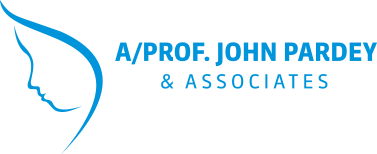Polycystic ovarian syndrome is a genetic difference, rather than a disease. The fundamental gene appears to be related to insulin resistance. For any given sugar load, a woman with PCOS manufactures more insulin to control her sugars than someone who does not have PCOS. The high insulin levels have effects on many different systems of the body including the blood vessel system, the hormone system and in particular, and the ovarian control system. Normally the ovaries make the egg that is then released each month as part of a healthy menstrual cycle. In the case of PCOS, the egg may not develop as it should or it may not be released during the ovulation process as it normally would.
Symptoms of PCOS can include ;-
- Irregular or missed menstrual periods
- Excessive Hair Growth
- Acne
- Obesity
- Infertility
- Development of small fluid filled sacs (cysts) in the ovaries
The art of managing PCOS,is to manage the individual woman’s symptoms. If the woman wants to get pregnant you use can medications such as Clomiphene Citrate to help her achieve this. Most women will fall pregnant with no help at all given enough time and a healthy fertile partner. Sometimes it can require IVF, but this is normally only after other treatments have been tried. If the woman complains of hair growth, we can also use medication to control this. There are some long term risks in terms of abnormal cells in the uterus that the Pill manages and there are some long term risks in terms of blood vessel disease. These are a little more common in women with PCOS , but looking after your blood sugar levels and looking after your general health will help manage this. There is good data to show that a successful treatment of PCOS involves trying to control the high insulin levels.
There is evidence that increasing muscle mass with reduce the insulin resistance so people who train with weights seem to do better. There is a drug called Metformin that increases your sensitivity to insulin and many people go on Metformin if it is difficult to control. That may make it a little easier to lose weight. Ultimately diet and exercise are better for general healthy weight loss. If you are having trouble controlling the symptoms and side effects of PCOS, then Metformin certainly appears to have a role. The Pill is very useful. For some women with a normal male hormone level but a very low level of sex hormone binding globulin, a very oestrogen based Pill can work because it brings the sex hormone binding globulin level up and means that the delivered male hormone effect is reduced. Some Pills have a specific anti-male hormone effect those are really good Pills. They do tend to knock libido around a little but if they suit and they don’t cause unhappiness or mood change then they can be very useful in terms of managing any acne or (in the longer term) managing any hair growth that PCO women sustain.
The key advice is that ultimately managing PCO is the management of being healthy with a healthy diet, healthy levels of exercise and training associated with the appropriate medication to manage contraception. PCOS is rarely a major issue providing that you obey these rules.
If you do have concerns regarding PCOS, please see your General Practitioner and if clinically indicated, you will be referred to see a Specialist Gynaecologists.
Book a Consultation
Get in touch with our practice to book your consultation.



